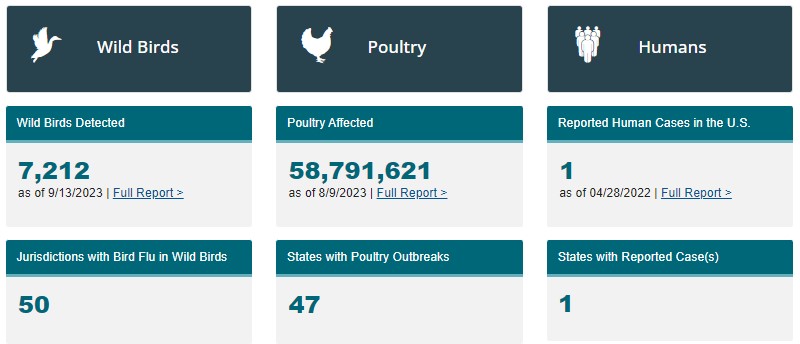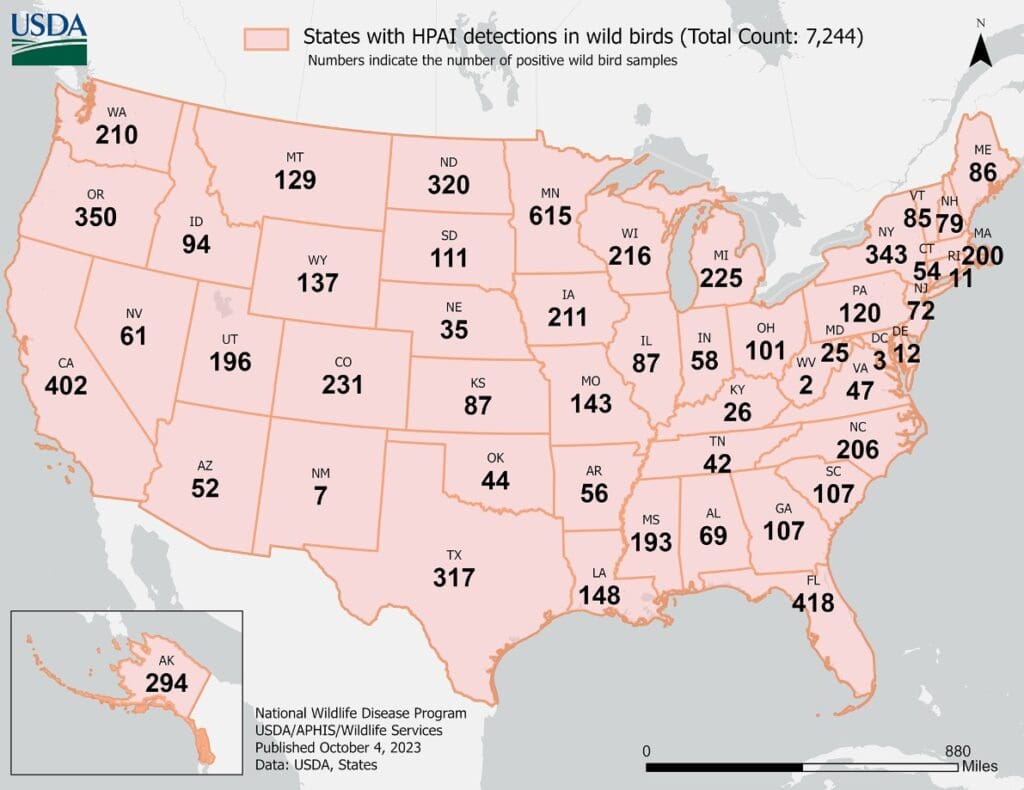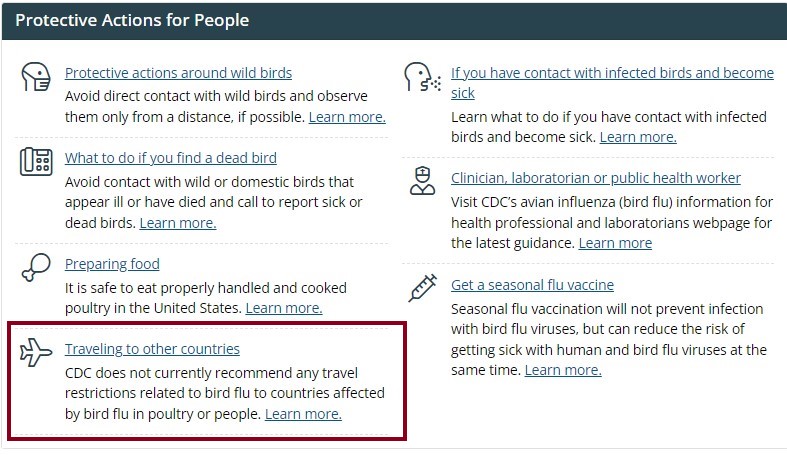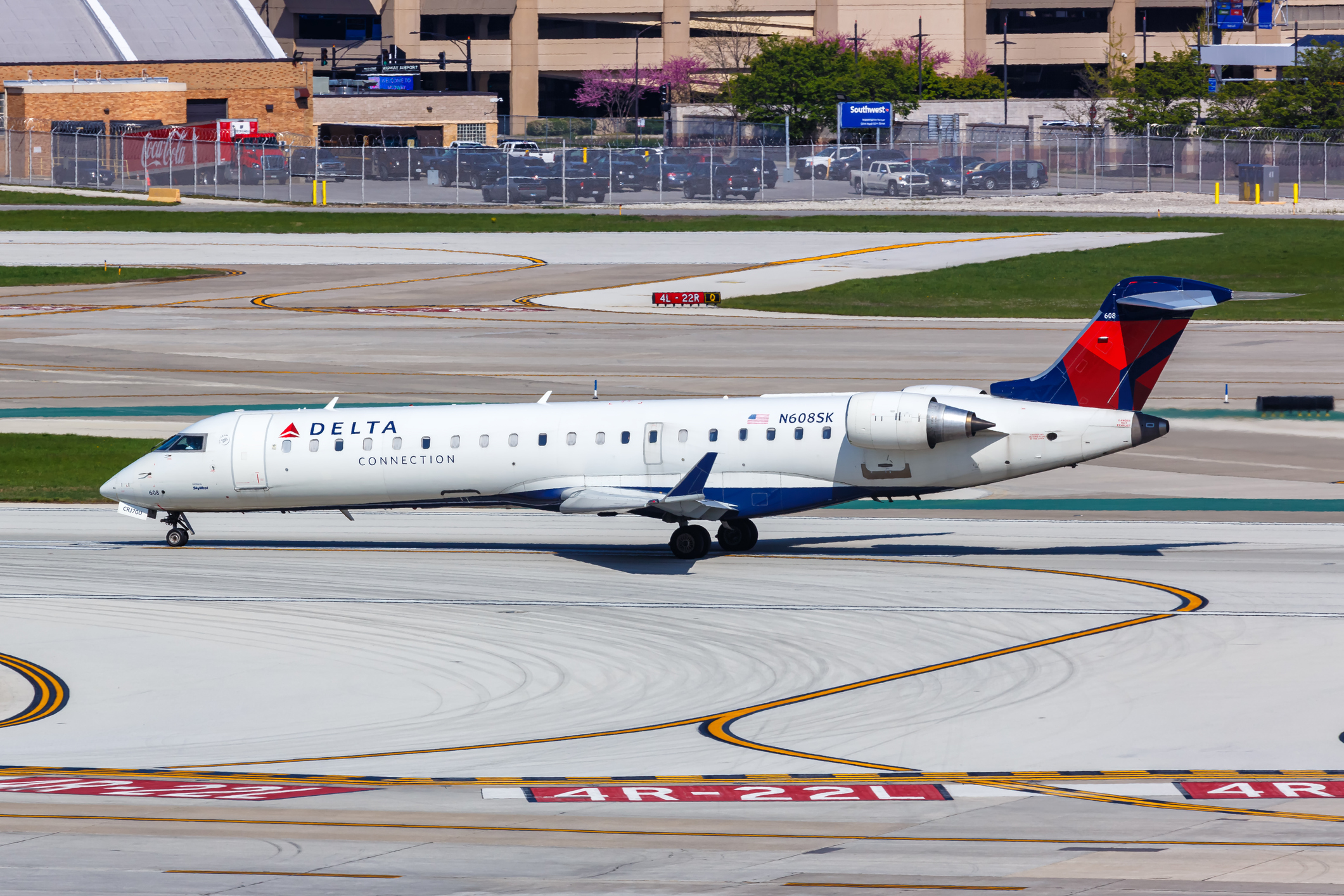Advertiser Disclosure: Eye of the Flyer, a division of Chatterbox Entertainment, Inc., is part of an affiliate sales network and and may earn compensation when a customer clicks on a link, when an application is approved, or when an account is opened. This relationship may impact how and where links appear on this site. This site does not include all financial companies or all available financial offers. Opinions, reviews, analyses & recommendations are the author’s alone, and have not been reviewed, endorsed, or approved by any of these entities. Some links on this page are affiliate or referral links. We may receive a commission or referral bonus for purchases or successful applications made during shopping sessions or signups initiated from clicking those links.
Is a rise in bird flu a threat to expedition cruises? I mentioned in this post – Is Ecuador Safe? If Not, What Does This Mean for Galapagos Cruises? that we have an upcoming cruise around the Galapagos Islands in Ecuador. Reader Chunny Bigrigga left a detailed comment about conditions in the Galapagos having recently completed a cruise and ended with “Keep an eye on the bird flu outbreak going on there now. I’ve heard they have had to do some re-routing of tours.”
I had seen somewhere that there were concerns about bird flu affecting Antarctic expedition cruises with a concern about spreading the disease amongst the colonies of penguins there. Back then, it didn’t click with me that the bird populations in the Galapagos are similarly isolated and this same concern may impact our upcoming cruise excursions. As we began to get closer to our cruise the issue bubbled back up.
Let me begin by saying that we are sailing on Celebrity Cruises and thus far they haven’t said anything about a change in our itinerary or any of the included daily excursions. We are very much looking forward to seeing the Galapagos Penguin, Blue-Footed Boobies, and more aboard Celebrity Flora. A quick search of the internet similarly hasn’t come up with anything definitive regarding bird flu impacting Galapagos cruises.

I live in Atlanta, Georgia home of the Centers for Disease Control and Prevention and know more than a handful of doctors and scientists that work there. So when something like this pops up they first come to mind and I was not disappointed, as they have a useful site devoted to Avian Influenza (Flu) – H5N1 Bird Flu: Current Situation Summary that is updated regularly with the best available data. Thus far it looks like cases in wild birds in the US is relatively limited and thus far there has only been one reported case in a person in the US.

Like most strains of the influenza virus that spread amongst humans, cases pick-up as the weather cools, which might be why we see higher numbers on average in northern states.

Cases of Bird Flu Reported to the USDA as of October 4, 2023. As mentioned, there’s no specific information regarding the Galapagos Islands, but there is more specific information related to the Antarctic. IAATO the International Association of Antarctica Tour Operators, a member organization founded in 1991 to advocate and promote the practice of safe and environmentally responsible private-sector travel to the Antarctic, published guidelines to address Avian Influenza. Published in November of 2022, the IAATO 2022-23 Biosecurity Protocols Regarding Avian Influenza listed six mandatory protocols for member organizations:
- Assessing visitor sites for signs of HPAI in wildlife colonies before commencing any landing.
- Remaining vigilant for signs of HPAI and be prepared to leave a site if any behavioural signs of HPAI are detected.
- Not sitting, kneeling, or lying down on the ground or snow, or leaving any equipment on the ground or snow, close to animal activity or faecal matter (e.g., within a minimum of 10m of nests or breeding adults, wildlife transit pathways, haul out sites).
- If visitors are approached by wildlife, visitors must take appropriate action to ensure the advised minimum distance of five metres is maintained where it can be safely done.
- Camping is only permitted at sites with minimal to no wildlife.
- Staff handling seabirds found landed on ships should wear appropriate PPE including face masks and gloves, and where disease is suspected, disposable overalls/aprons and safety glasses/shield
It’s possible that these bird flu protocols or similar ones begin to roll out in other remote regions home to colonies of birds.
The CDC is not currently recommending any travel restrictions to any regions or specific countries at this time, but does have some suggested protective actions individuals can take to protect themselves and with some guidelines help protect wild birds.

The Telegraph published an article on September 30, 2023 entitled: Are Antarctic cruises in jeopardy? As bird flu fears see cruise ships adopt new protocols, there are concerns that visits to the region may need to be cancelled altogether where they explored the question including whether passengers may be prevented from going ashore. I don’t know about you, but not being able to go ashore and set foot on the southernmost continent would be a deal breaker, particularly when you consider the significant costs of these expedition cruises.
This is a developing situation and we’ll keep an eye out for updates as we sail into fall and winter in the Northern Hemisphere. If anyone has recently come off of an expedition cruise to the Galapagos or Antarctic, please share if your expedition was impacted in any way by bird flu protocols or changes in itinerary. – Michael
Advertiser Disclosure: Eye of the Flyer, a division of Chatterbox Entertainment, Inc., is part of an affiliate sales network and and may earn compensation when a customer clicks on a link, when an application is approved, or when an account is opened. This relationship may impact how and where links appear on this site. This site does not include all financial companies or all available financial offers. Opinions, reviews, analyses & recommendations are the author’s alone, and have not been reviewed, endorsed, or approved by any of these entities. Some links on this page are affiliate or referral links. We may receive a commission or referral bonus for purchases or successful applications made during shopping sessions or signups initiated from clicking those links.










How about “bord flu a threat to birds?” That should be the real concern.
@Sandi – The cruise industry in the Galapagos is the gold standard for sustainable cruising supporting ecological conservation. Per ESPOL’s (Escuela Politécnica Ecuador)in 2019, the last full “normal” year with data available – “the total cruise sales in 2019 were $266,2MM. 67% of the sales come from medium and small cruise companies. Moreover, cruise trips represented 75% of the total income for the Galapagos Islands…” A 75% loss in income for the Galapagos islands would be devastating for the human population in these remote islands.
How about “bord flu a threat to birds?” That should be the real concern.
@Sandi – The cruise industry in the Galapagos is the gold standard for sustainable cruising supporting ecological conservation. Per ESPOL’s (Escuela Politécnica Ecuador)in 2019, the last full “normal” year with data available – “the total cruise sales in 2019 were $266,2MM. 67% of the sales come from medium and small cruise companies. Moreover, cruise trips represented 75% of the total income for the Galapagos Islands…” A 75% loss in income for the Galapagos islands would be devastating for the human population in these remote islands.